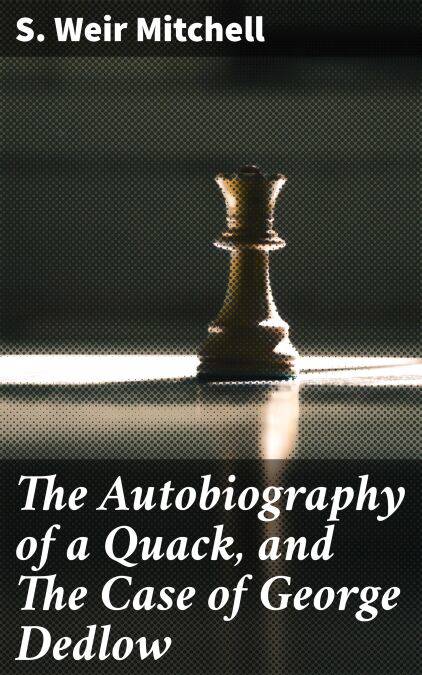
- Afhalen na 1 uur in een winkel met voorraad
- Gratis thuislevering in België vanaf € 30
- Ruim aanbod met 7 miljoen producten
- Afhalen na 1 uur in een winkel met voorraad
- Gratis thuislevering in België vanaf € 30
- Ruim aanbod met 7 miljoen producten
Zoeken
The Autobiography of a Quack, and The Case of George Dedlow E-BOOK
A Tale of 19th-Century Quackery and Medical Ethics
S. Weir Mitchell
E-book | Engels
€ 0,49
Omschrijving
In "The Autobiography of a Quack, and The Case of George Dedlow," S. Weir Mitchell delves into the intricate interplay of medicine, morality, and identity through a satirical lens. The two-part narrative masterfully intertwines fiction and biographical elements, revealing the complex nature of medical practice during the 19th century. Through vivid characterizations and a compelling first-person perspective, Mitchell critiques medical charlatanism while simultaneously exploring the societal impact of medical ethics and patient care, all framed in richly descriptive prose that reflects the literary realism of his era. S. Weir Mitchell was not only a physician but also a respected novelist, whose unique experiences undoubtedly influenced his writing. He was a pioneer in neurology and a prominent figure in the development of psychological medicine. His intimate understanding of medical practices and the challenges faced by both practitioners and patients provided a foundation for his sharp critique of the medical profession, leading to a nuanced exploration of themes such as fraud, disillusionment, and the quest for authenticity. This provocative work is essential for readers interested in the intersections of medicine and literature. Mitchell's keen observations and insightful commentary resonate today, making this book a compelling read for anyone eager to explore the ethical dilemmas inherent in the medical field and the enduring struggle for personal integrity.
Specificaties
Betrokkenen
- Auteur(s):
- Uitgeverij:
Inhoud
- Aantal bladzijden:
- 155
- Taal:
- Engels
Eigenschappen
- Productcode (EAN):
- 4057664572394
- Verschijningsdatum:
- 2/12/2019
- Uitvoering:
- E-book
- Beveiligd met:
- Digital watermarking
- Formaat:
- ePub

Alleen bij Standaard Boekhandel
Beoordelingen
We publiceren alleen reviews die voldoen aan de voorwaarden voor reviews. Bekijk onze voorwaarden voor reviews.











